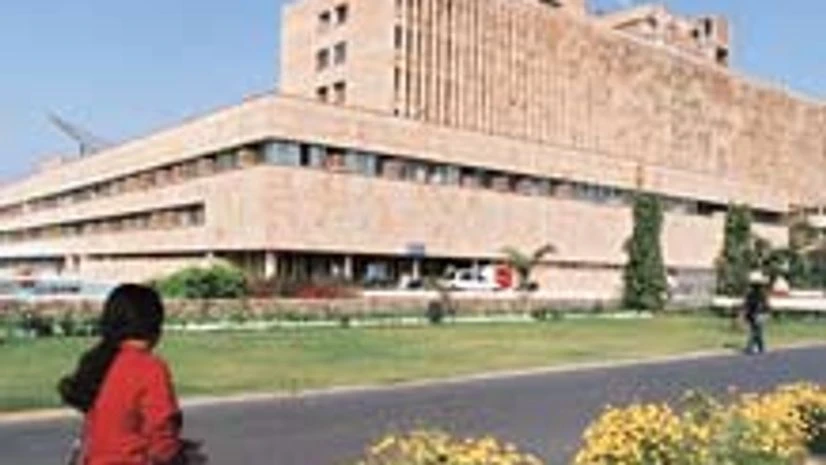That is because IITs spend Rs 3.4 lakh on a student in a year. “Though we spend more on students than we charge them in terms of fee, we also have a responsibility as public institutions. We cannot expect student fees to take care of the entire expenses — capital plus operating costs,” said Devang Khakhar, director, IIT-Bombay.
The fees for about 22 per cent of students from the SC/ST category are fully waived. Also, up to 25 per cent of the students, whose parental annual income is less than Rs 4.5 lakh, are entitled to a fee-waiver. The remaining students pay the full fee.
Currently, tuition fees finance only seven-10 per cent of the total recurrent expenditures of the IITs. Also, no fees are charged for SC/ST students and for OBC students with an income test. Most post-graduate and PhD students get scholarships and reimbursement of their tuition fees.
IITs meet 80 per cent of their expenses — salaries and staff cost which are fixed — through financial grants from the ministry of human resource development (MHRD).
Given that IITs are government institutions and have made engineering education accessible to the middle class, the cost needs to be shared by state as well as society, says an IIT Kanpur professor.
"For IITs to be financially independent, a bouquet of financial instruments needs to be put in place. The industry, which recruits students from us and our alumni group need to understand what IITs do for them,” the professor added.
A recent note on IIT-Bombay's finances prepared by IIT-Bombay Heritage Foundation says the current system of charging fees needs to be reformed.
"Currently, IIT-Bombay collects tuition fees net of exemptions, which results in very low contributions to internal revenues. To mobilise increased resources from fees, a structural reform of the fees/exemption system is needed,” says the note. It adds that under this system, all students would pay the fees to IIT-Bombay and if the government policy is to subsidise targeted groups, then these groups should compensated by a cash transfer mechanism. Such a system would considerably reduce IIT-Bombay’s dependence on the government. Increasing fees under the present system will not.
“In general, the IIT fee system is complicated with a number of exemptions, reimbursements and concessional fees for specific target groups. As a result of these exemptions, in FY12, the average net collection per undergraduate student is only 50 per cent of the average fee of 50,000 per annum. In short, if the present system of fees and exemption is continued, future increases in fees will not yield resources to cover the expected increasing share of the operating costs," the note says.
In contrast, the top 20 private engineering institutes in the country charge anywhere between Rs 50,000 and Rs 1 lakh per student per annum. Keeping inflation into account, these institutes increase the tuition fee every few years.
IIT-Bombay's yearly expenditure is Rs 250 crore. The institute receives around Rs 200 crore in grants from MHRD and the rest is generated by tuition fee and other miscellaneous charges from students. Salary and staff cost, including electricity and sundry bills, goes up by around 10 per cent each year at IIT-Bombay.
The total resources available from all sources to IIT-Bombay, about $14,000 (about Rs 8.4 lakh) per student, are much lower than resources available to US universities such as Massachusetts Institute of Technology, California Institute of Technology (about $250,000 or Rs 1.5 crore), and even for Asian universities such as the National University of Singapore, about $40,000 (about Rs 24 lakh).
IIT-Guwahati, on the other hand, has an annual expenditure of Rs 110 crore, and nearly 15 per cent of this — Rs 15-16 crore — comes from fees. Gautam Barua, director of IIT-Guwahati, had earlier said with the increase, it would now contribute about 17 per cent.
IIT-Delhi’s annual expenditure is around Rs 170 crore. Eight to 10 per cent of it comes from fees and the rest through grants from MHRD.
When the IITs began operations, they charged an annual fee of Rs 500 for their flagship undergraduate engineering programme.
The IITs have revised their fee only twice in the past — in 1998 and 2008.
In 2008, IITs had doubled the fee for undergraduate courses from Rs 25,000 to Rs 50,000 a year.
HELPING HAND
* Fees for about 22 per cent of students from the SC/ST category are fully waived
* Up to 25 per cent of the students whose parental annual income is less than Rs 4.5 lakh are entitled to a fee-waiver
* No fees are charged for SC/ST students and for non-creamy layer OBC students. Most post-graduate and PhD students get scholarships and their tuition fees are reimbursed

)
